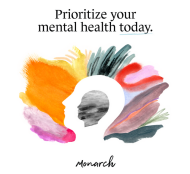Tips for Managing Situational Anxiety
Tips for Managing Situational Anxiety
Being a human gifted with the capacity to imagine a future has so many benefits! Whether it’s planning a tasty meal, looking forward to the results of a project, or anticipating an upcoming vacation, the emotional, mental, and physical gains are real.
That being said, I have never met anyone who could honestly say that they have never experienced some level of situational anxiety. This is part of a continuum with nervousness on one end, worry in the middle and anxiety at the other end. Situational anxiety is the reactions we have – physical, cognitive and emotional – when faced with a scenario that is novel or has elements of unpredictability and the unknown.
Examples of situational anxiety triggers include things like starting a new job, meeting someone new, having to give a speech or presentation, flying, making phone calls or preparing for or experiencing a natural event, such as a tornado or hurricane.
Symptoms of situational anxiety are similar to those of generalized anxiety (see Counseling for Anxiety) and can include things such as apprehension or nervousness about an upcoming event. Worry that distraction cannot alleviate. Increased heart rate and breathing, blood pressure, pulse, and respirations, restlessness. The expression of helplessness or a hard time getting to or staying asleep because thoughts continue to spiral.
Some level of nervousness, worry or anxiety can potentially be beneficial. In the face of a new or novel experience, situational stress could potentially enable an increased focus and motivation to act.
So, how to respond to situational anxiety in order to decrease or eliminate it when it is happening? And how can situational anxiety be prevented?
Here are a few tips:
Get prepared. Focus on what can be controlled and on adequate readiness.
Remind yourself of past successes and that you can trust yourself to do the best you can in the situation.
Expose yourself to parts of the upcoming situation or to the scenario as a whole. This is a common approach to eliminating phobias and anxiety. Situational anxiety tends to decrease as familiarity increases.
Focus on self-care. Be consistent with your nutrition, sleep hygiene, personal connections and activities that help your recharge.
Practice relaxation techniques such as deep breathing, EFT (Emotional freedom techniques), otherwise known as tapping and positive visualization.
Notice your thoughts, feelings and body sensations. Identify what you notice and acknowledge it. “I notice I am having the thought ___.” Try to focus on the fact that you can have these thoughts/feelings/sensations AND not have to focus on finding a solution. Try to hold the tension between the intense feelings and the facts. This mindfulness will work to eliminate judgement, which often manifests as an inner critic spewing shoulds and shame, which are not productive (and likely not true).
When you experience the symptoms of anxiety in a particular scenario and self-help does not make the difference you need in order to function as you normally do, you may need to reach out to a licensed clinical social worker or mental health counselor. Cognitive behavioral therapy and EMDR (Eye movement desensitization and reprocessing) are two types of effective therapy for situational anxiety.
Dealing with anxiety is one of Kristine’s specializations. Reach out today for help to feel better tomorrow.
Reach out to Kristine Proctor at 386-473-1062 or send her a message now.
Find yourself, and be that.

Licensed Clinical Social Worker
EMDR Certified Therapist
112 W. New York Avenue, Suite 205
DeLand, FL 32720
